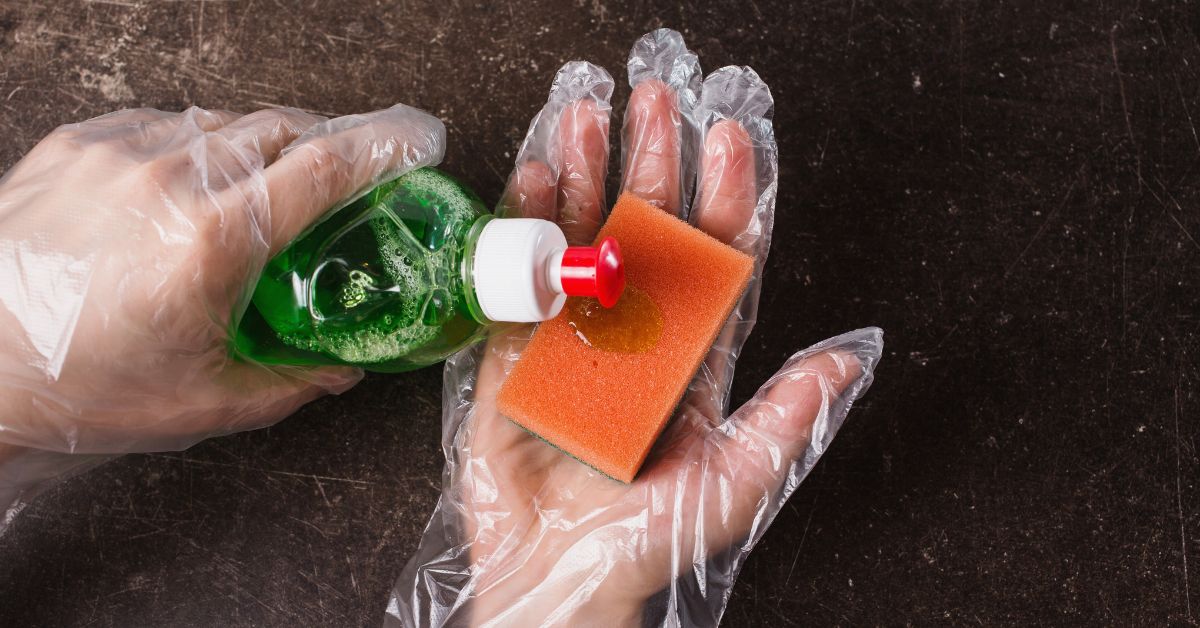ADVERTISEMENT
**6+ Things You Should Never Clean with Dish Soap**
Dish soap is a go-to cleaner in many households, offering an effective solution for washing dishes, cleaning surfaces, and even tackling greasy messes. Its versatility has made it a staple in kitchens and bathrooms around the world. However, while dish soap is great for most common cleaning tasks, there are **certain things you should avoid using it on**. Using dish soap incorrectly can lead to damage, buildup, or simply ineffective cleaning. To keep your home in top shape, here’s a guide to the **6+ things you should definitely avoid cleaning with dish soap**.
### 1. **Wood Furniture and Surfaces**
While dish soap is excellent for cleaning greasy kitchenware, it’s not ideal for wooden furniture or surfaces. Wood is porous and can absorb moisture, causing it to warp, crack, or lose its natural finish over time.
#### Why to Avoid:
– **Moisture damage:** Dish soap can leave water behind that may seep into the wood, causing swelling or warping.
– **Finish removal:** The harsh chemicals in dish soap can strip the wood’s finish, making it look dull and worn out.
#### What to Use Instead:
– For routine cleaning, use a **gentle wood cleaner** or a solution of water and vinegar. For polishing, a dedicated **wood furniture polish** will protect and maintain the finish.
### 2. **Leather Items (Shoes, Bags, Sofas)**
Leather items like shoes, handbags, and furniture are often cleaned with dish soap in a pinch, but this is a big mistake. Leather is a sensitive material that requires special care to maintain its quality and appearance.
#### Why to Avoid:
– **Drying out:** Dish soap can dry out leather, leading to cracking and discoloration.
– **Damage to texture:** The soap can strip the natural oils from leather, ruining its smooth texture and sheen.
#### What to Use Instead:
– For leather goods, use **leather-specific cleaners** or a mixture of **mild soap** and **water**. Follow up with a **leather conditioner** to restore moisture and flexibility.
### 3. **Stainless Steel Appliances**
Stainless steel appliances, like refrigerators, dishwashers, and ovens, are prone to streaking and staining when cleaned improperly. Although dish soap can remove grease, it’s not the best option for maintaining that shiny, smudge-free finish.
#### Why to Avoid:
– **Streaks and residue:** Dish soap can leave a film behind on stainless steel surfaces, leading to unsightly streaks.
– **Damage to finish:** Over time, using dish soap can dull the shiny finish of stainless steel appliances.
#### What to Use Instead:
– Clean stainless steel with a **gentle cleaner** specifically designed for stainless steel, or use a **vinegar and water** solution followed by a buffing with a microfiber cloth.
### 4. **Glass Surfaces (Windows, Mirrors)**
Although dish soap is excellent for washing dishes, it’s not the best option for cleaning glass surfaces, such as windows and mirrors. While it can remove dirt and grime, it often leaves streaks and smudges behind.
#### Why to Avoid:
– **Streaking:** Dish soap leaves a greasy residue on glass, making it difficult to get a streak-free finish.
– **Build-up:** Over time, using dish soap on glass can cause a greasy buildup that attracts more dirt.
#### What to Use Instead:
– For sparkling clean windows and mirrors, use **glass cleaner** or a mixture of **vinegar and water** to cut through grime without leaving streaks.
### 5. **Nonstick Cookware**
Nonstick pans and cooking surfaces require careful cleaning to maintain their nonstick properties. While dish soap may seem like a natural choice for washing these items, it can actually do more harm than good.
#### Why to Avoid:
– **Damage to coating:** Harsh dish soaps can wear down the nonstick coating, leading to scratches or peeling, which affects the cookware’s performance.
– **Breakdown of surface:** Over time, using dish soap can degrade the nonstick layer, making it less effective and more prone to food sticking.
#### What to Use Instead:
– For nonstick cookware, use a **soft sponge** or cloth and **mild soap**. It’s best to avoid abrasive cleaning tools or harsh chemicals.
6. **Delicate Fabrics (Silk, Wool, etc.)**
When it comes to washing delicate fabrics like silk, wool, or cashmere, dish soap is a poor choice. These fabrics require more care than typical laundry detergents offer.
For Complete Cooking STEPS Please Head On Over To Next Page Or Open button (>) and don’t forget to SHARE with your Facebook friends
ADVERTISEMENT
